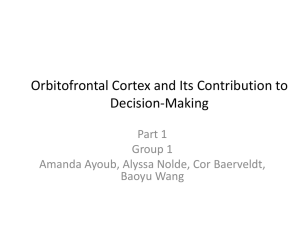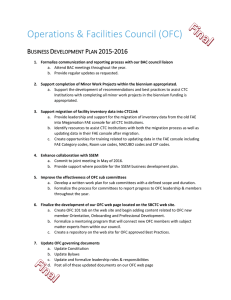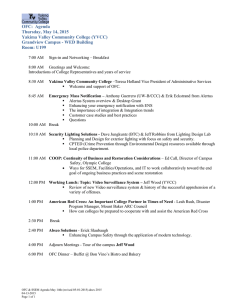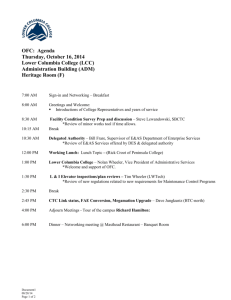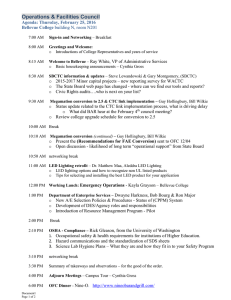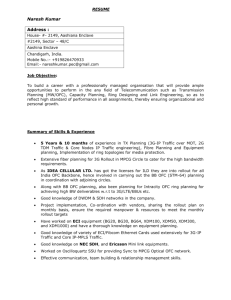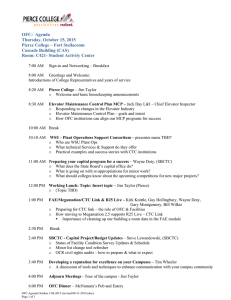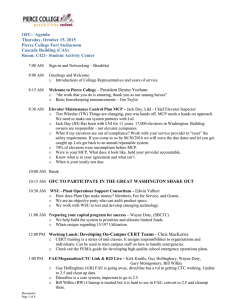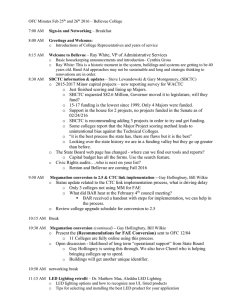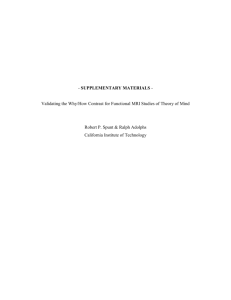OFC – LPFC—MPFC INTERACTION
advertisement
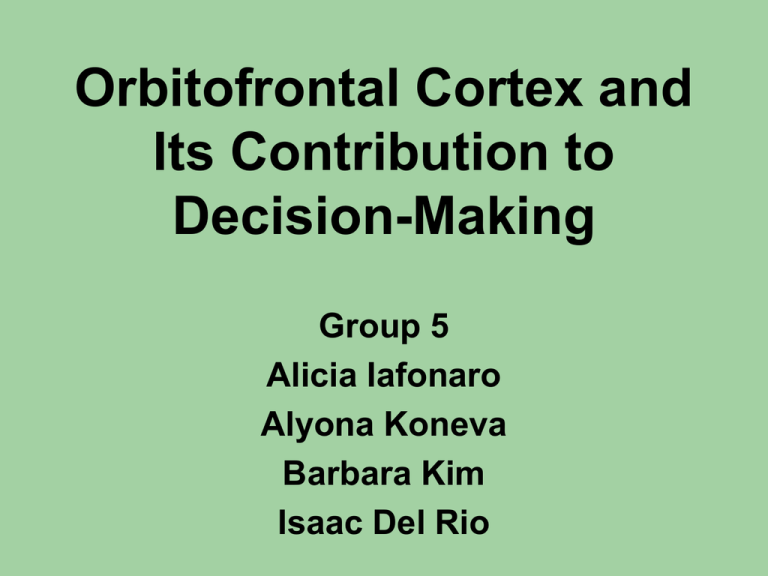
Orbitofrontal Cortex and Its Contribution to Decision-Making Group 5 Alicia Iafonaro Alyona Koneva Barbara Kim Isaac Del Rio The Model of Decision Making Within the PFC • First, sensory, affective, and motivational information enter the OFC • Next, the OFC encodes the value of an outcome • Then, the lateral PFC constructs a way to obtain the outcome • At the same time, the MPFC evaluates the effort involved (likelihood of success, cost v. benefit analysis. Model of PFC Decision Making • PFC includes the OFC • PFC holds sensory info in working memory and uses that info to change activity in other areas of behavior • LPFC encodes sensory, behavior and context of behavior responses Orbitofrontal Cortex OFC – LPFC—MPFC INTERACTION • OFC takes in sensory, affective and motivational info and calculates/encodes value of an outcome – but not how to get there • LPFC makes a plan to reach goal, prioritizes, and predicts outcome • MPFC evaluates value of outcome and plan, calculates – “Is this worth doing?” Example of a working OFC MARIJUANA OLFACTORY CORTEX SMELL OF MARIJUANA SMOKE AMYGDALA SMELLS GOOD HYPOTHALAMUS FEEL GOOD OFC INTEGRATES INFORMATION, DERIVES VALUE OF POTENTIAL REWARD OUTCOMES DLPFC CONSTRUCTS PLAN TO OBTAIN REWARD I WALK AWAY, DON’T SMOKE, AND KEEP MY JOB AND STAY OUT OF JAIL BEHAVIORAL RESPONSE HE WALKS AWAY MPFC EVALUATES EFFORT WALKING AWAY IS NOT THAT HARD IF IT DOESN’T WORK, I WILL TRY DIFFERENT PLAN How does OFC interact with other brain regions? • Holding information about the outcome in working memory can be useful for performance. • Working memory is used in solving stimulus-reward reversal tasks. • Lesions to the OFC affects learning of reward-reversal learning and cause perseveration. • Monkeys with OFC lesions can’t adopt the “win-stay, lose-shift” strategy. • The “win-stay, lose-shift” strategy requires that monkeys hold info about the outcome in working memory . Disorders associated with OFC dysfunction OFC that is not functioning properly can results in compulsive disorders like: •Drug use •Pathological gambling •Eating Disorders •OCD These disorders might result from lack of topdown control, not being able to plan for the future and failing to bias behavior away from immediate rewards towards better long-term outcomes. Does the model fit existing knowledge? • It is a pretty good fit – as far as it goes. • However, the OFC is composed of many different sub-areas. • As technology advances, our understanding of the brain becomes more complex • We expect that future research will help to delineate which sub-areas of the OFC are responsible for different types of processing.
